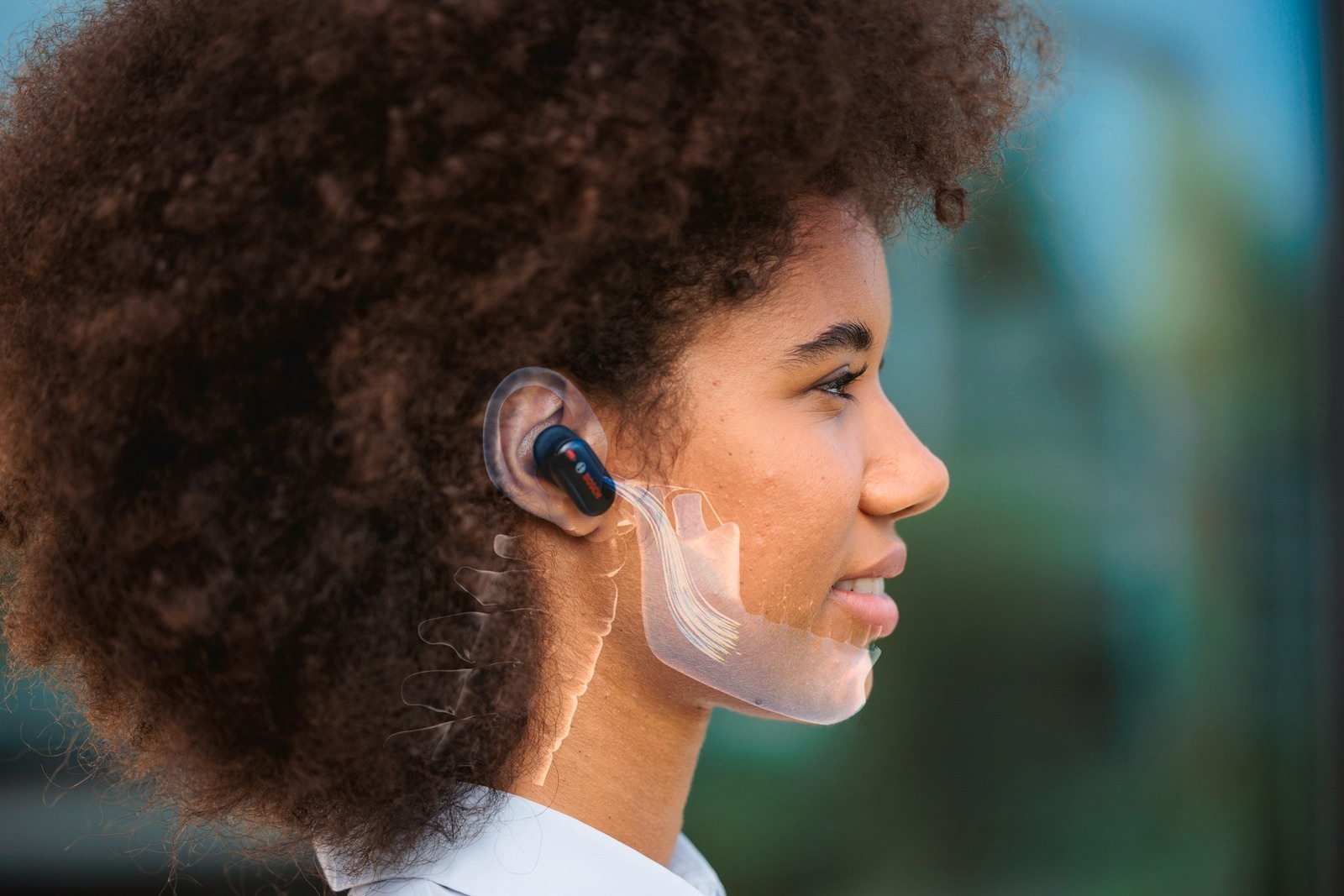Space is at a premium in hearables, smartwatches and other portable consumer products, and all components must be as small as possible. At the same time, OEMs are demanding plug-and-play step-counters and other sensors with built-in features that enable easy implementation without detailed application knowledge. To meet these challenges, Bosch Sensortec has announced the BMA530 and BMA580, the world's smallest MEMS accelerometers. Both devices include built-in features making them easy to design with. BMA530 tracks activities with its step counter and is especially suitable for wearables, and BMA580 targets hearables with voice activity detection.

Image Credit: Bosch Sensortec GmbH
Compared to Bosch's current generation accelerometer (BMA253), the BMA530 and BMA580 have a 76 percent smaller footprint and have been reduced in height from 0.95 mm to 0.55 mm. This size reduction is achieved with an innovative Wafer Level Chip Scale Package (WLCSP). The small size of the accelerometers makes them easy to place on a PCB, and their integrated features make them easy for design engineers to integrate into their portable products. "The demand for tiny sensors with ever-increasing performance is growing as the industry moves towards more stylish and minimalist designs that require smaller sensors," said Stefan Finkbeiner, General Manager and CEO of Bosch Sensortec. "The new BMA530 and BMA580 provide an ultra-compact, fully-featured solution to meet this demand."
Bone Conduction for Reduced Power Consumption
The BMA580 provides innovative voice activity detection and an advanced feature set for hearable devices. Typically, microphones in hearables consume a lot of power because they need to be always-on to listen for voice activity. Instead, the BMA580 uses bone conduction to detect the vibration of the user’s voice and then wakes the microphone from sleep – for an overall power saving. No other sensor on the market combines bone conduction with this miniature sensor size. The BMA580 enables user interaction with a hearable in response to the user tapping the device, for example to answer or end a call. The sensor’s software includes an algorithm that can distinguish between single, double and triple taps.
In addition to wearables, the new BMA530 acceleration sensor is ideal for gesture recognition in toys, fall detection in laptops and other devices, and power management functions such as putting a smartphone to sleep when it is not moved.
The new accelerometers offer multiple power modes and automatically switch from low-power to high-power modes to extend battery life. They offer a flexible set of connectivity options, including an I3C® interface.